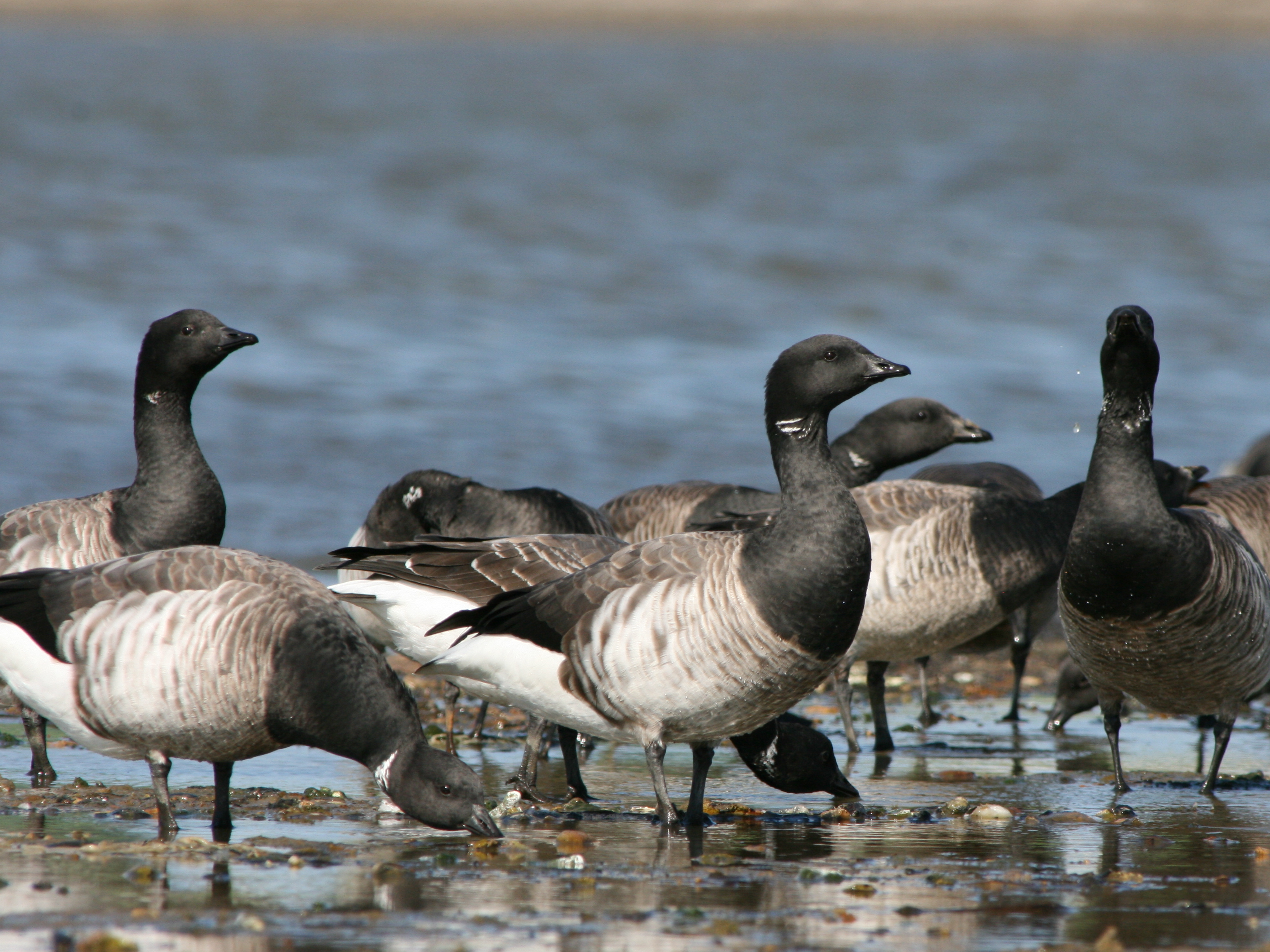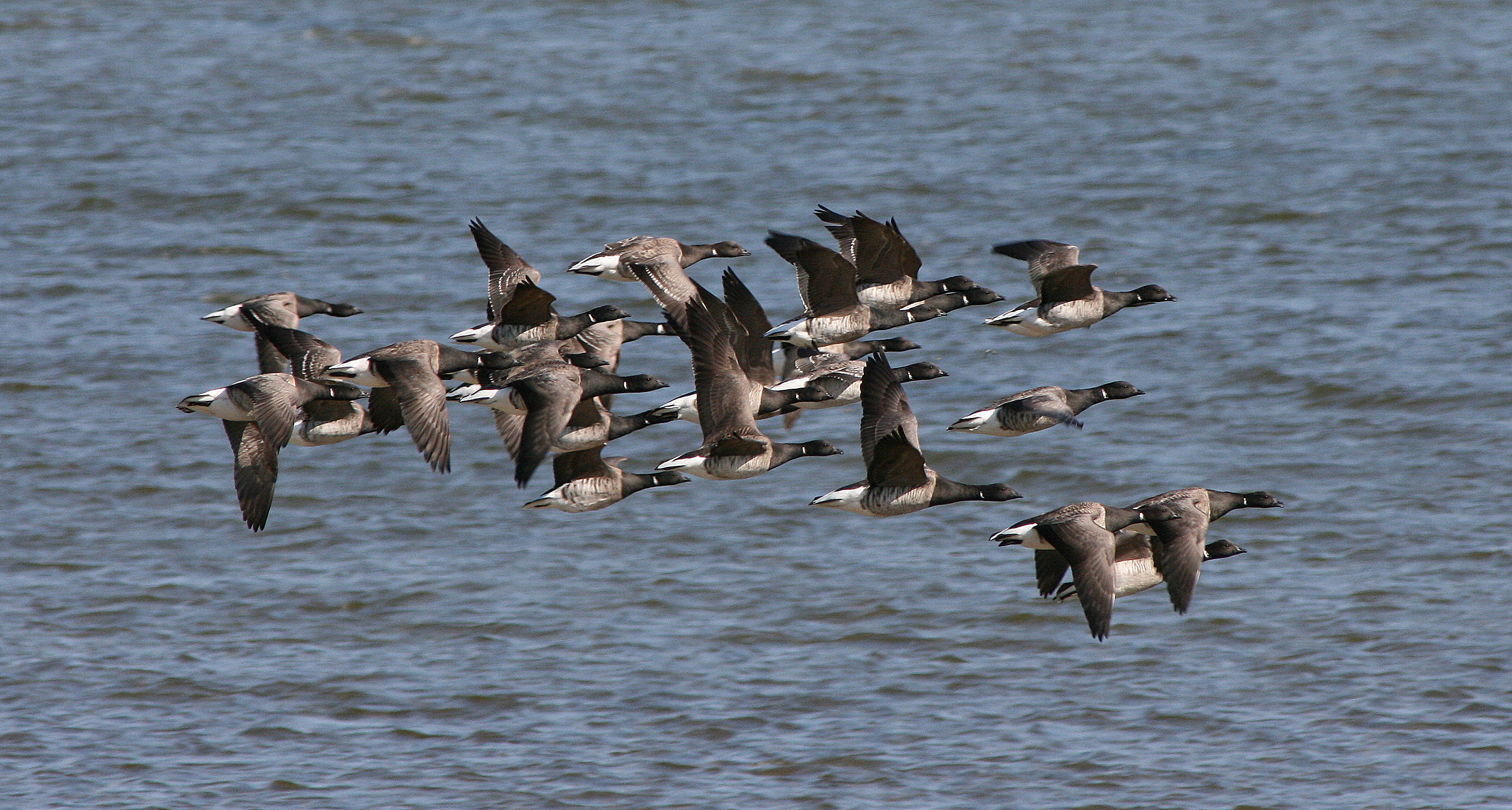Brent goose under threat by climate change
Plant-eating coastal birds are under threat. Tidal marshes are no longer managed through natural grazing, and rising temperatures lead to increasing water levels. The life-giving tidal marshes are shrinking drastically in area from year to year. Consequently, less food and energy are available to migratory birds before flight northward to their arctic breeding grounds.


In the beginning of this century migrating pale-bellied brent geese coloured the sky when as many as 100,000 birds migrated between Europe and the arctic. In the tidal marshes in, among other countries, Denmark, they grazed on sea spear grass and eelgrass growing extensively in large marshes at shallow water. In spring, the tidal marshes act as an important food larder where the geese replenish their body reserves and increase their weight by up to one-third. This is a perquisite to have the strength for the 3000 km nonstop flight to their arctic breeding grounds.
Free fall
In Denmark, eelgrass has disappeared from large areas. During the 1930s the eelgrass disease raged, and later the high concentrations of nutrients in Danish coastal waters have prevented its spreading. This is, however, only one of the several threats to pale-bellied brent goose, which used to be a popular prey among hunters. At the end of the 1960s, only 1,800 birds were left and the brent goose was close to extinction. In 1972, the introduction of a complete hunting ban shifted the development, but now the curve again has a negative slope.
It is no longer economically viable to let sheep and cattle graze the tidal marshes, implying that the marshes are taken over by reeds, which are not utilised by waterbirds for food. The number of brent goose is, therefore, again declining. In recent years, the population has decreased by ca. 20% and now counts about 7,000 birds.
The climate change-induced increase in water levels will lead to flooding of the remaining tidal marshes; and with a predicted water level increase of up to 1 metre the prospects for waterbirds are gloomy. Calculations show that the higher water level will erase up to 45% of the geese habitats.
Create tidal marshes
MSc Kevin K. Clausen, Arctic Research Centre and Department of Bioscience, Aarhus University, has just defended his PhD dissertation on plant-eating waterbirds. The dissertation presents the scientific basis for a management plan protecting the feeding areas of the waterbirds.
“We cannot immediately prevent the rise in sea levels, but we may take initiatives to actively manage the tidal marshes left, just as we may create new tidal marshes by removing dikes to allow flooding of low-lying fields. This will benefit not only pale-bellied brent goose, but also many other threatened coastal birds such as ruff, marsh sandpiper and black-tailed godwit whose populations also are declining,” says Kevin K. Clausen.
Threat from the north
In his PhD dissertation Kevin K. Clausen treats another threat to pale-bellied brent goose – the fact that climate changes are particularly strong in the arctic where spring now comes two weeks earlier than just 25 years ago. The summer period is short and intense here at the roof of the Earth, and if the geese arrive at Svalbard or in North-East Greenland two weeks after the start of the season, less nutritious food will be available to their offspring. Kevin K. Clausen’s investigations show that the breeding success of brent goose is markedly lower in years when the geese arrive significantly later than at the beginning of spring.
”Other arctic-breeding birds probably face the same problem, and active efforts and clever management of our coastal-near areas are therefore necessary to secure the best possible resting grounds for the birds here in Europe,” says Kevin K. Clausen.
Kevin K. Clausen successfully defended his PhD dissertation ”Consequences of climate changes for plant-eating waterbirds” on Wednesday 8 January, 2014, at Kalø.
Contact info: Kevin K. Clausen, e-mail: kc@dmu.dk, tel.: +45 2427 6711
